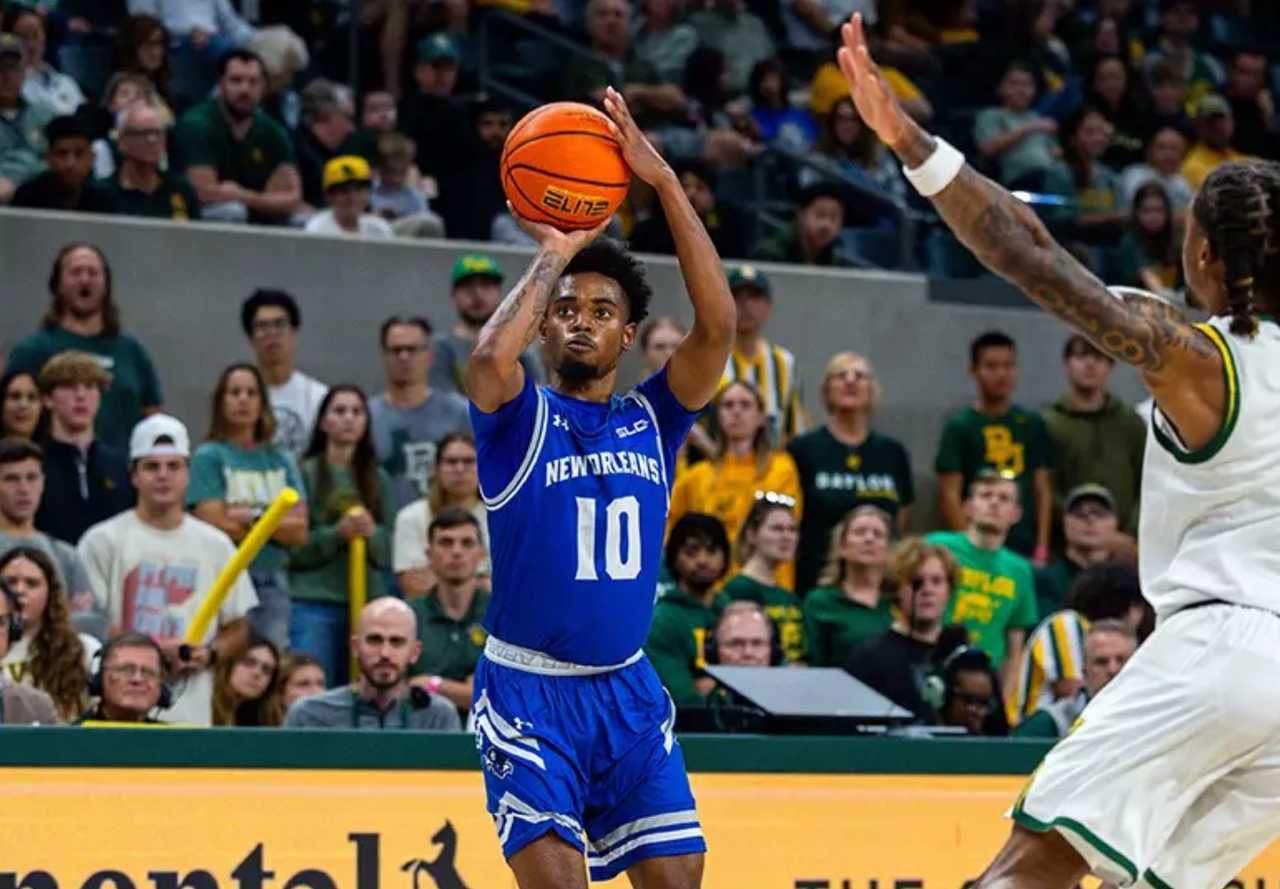
By Chris Spiker From Daily Voice
A banned college basketball player emotionally shared why he took part in a point-shaving scheme that cost him his NCAA career.
Former University of New Orleans guard Cedquavious "Dae Dae" Hunter spoke about his ban on ABC's "Good Morning America" on Monday, Nov. 17. Hunter and two of his teammates were among six basketball players permanently banned by the NCAA for their roles in three separate gambling schemes.
Sitting down with ABC News correspondent Will Reeve, Hunter explained how he got involved in the plan to throw games during the Privateers' 2024-25 season.
"I did point shave," said Hunter. "I did go out there and not do my best, basically shooting a ball and not actually trying to make it, but making it. Like, make a couple and miss a couple."
Hunter, who averaged 8.2 points per game and shot nearly 39% from three, arrived at New Orleans after playing his sophomore year for Pearl River Community College in his native Mississippi. The kinesiology major, who began his college career at California State University, Bakersfield, played in 21 games for New Orleans, starting in 16 contests.
The NCAA's investigation into New Orleans began in February after a tip about possible game fixing. Investigators later reviewed seven games from December 2024 and January 2025, including a matchup against McNeese State, which eventually made the NCAA tournament and upset Clemson.
Hunter said he and his teammates were approached by an unidentified bettor in Las Vegas who watched their record and targeted games with favorable odds.
"They'll look at the record," Hunter said. "They're like, uh yeah, it's a better chance that they lose by a certain spread."
Text messages recovered from teammate Dyquavian "Jah" Short's phone showed conversations between Short and Hunter about receiving $5,000 after a FaceTime call with a bettor to "lay it down" for one of the games. NCAA investigators said Hunter, Short, and teammate Jamond "Turk" Vincent discussed intentionally losing games to benefit gamblers.
Hunter said he was confident he'd be able to manipulate the games' results.
"95% we were going to get the job done," he said.
Hunter was overcome with emotion when asked about why he was "money hungry" before admitting that he entered the scheme to support his newborn baby.
"I just had a child," he said. "The school wasn't paying me money, so I was trying to get money to actually take care of my child."
Reeve then asked what Hunter will tell that child someday.
"Don't do what daddy did," Hunter said.
Hunter still hopes to continue his basketball career professionally and ended the interview by echoing his warning to all young athletes.
"Don't follow my steps and don't do the same thing I did," said Hunter. "Don't make the mistake I made."
Another NCAA case involved Mississippi Valley State University's team. A student-athlete reported overhearing Donovan Sanders talking on the phone about "throwing the game" against the University of Tulsa on Saturday, Dec. 21, 2024.
Sanders later texted the teammate to delete the messages, along with admitting that he and Alvin Stredic were offered money to perform poorly in the first half of a January 2025 game against Alabama A&M University.
At Arizona State University, investigators discovered that Chatton "BJ" Freeman shared information about his own games with his former girlfriend and with Mykell Robinson, a Fresno State University player who was among three Bulldogs permanently banned in September. Robinson and Freeman's ex-girlfriend used the info to place daily fantasy sports bets.
The NCAA said Hunter and the five other players gave false or misleading information during the investigations. The athletes are permanently ineligible to compete in NCAA sports unless reinstated by a member school.
The college scandals mirror high-profile cases in the NBA. In October, two investigations into NBA prop-bet fixing and rigged poker games netted 34 arrests, including Portland Trail Blazers head coach Chauncey Billups, Miami Heat guard Terry Rozier III, and retired player Damon Jones.
In a statement to ABC News, the NCAA said it "operates the largest integrity monitoring program of any sports league in the country."
The NCAA also urged lawmakers and gambling companies to do more to stop "gray market operators," as well as limit "risky" prop bets.

 Daily Voice
Daily Voice
 The Journal Gazette
The Journal Gazette New York Post Sports
New York Post Sports Boston Herald
Boston Herald Cover Media
Cover Media Local News in Wisconsin
Local News in Wisconsin Raw Story
Raw Story First Alert 4 Sports
First Alert 4 Sports Elle
Elle AlterNet
AlterNet